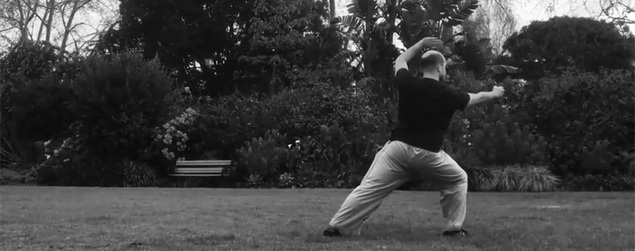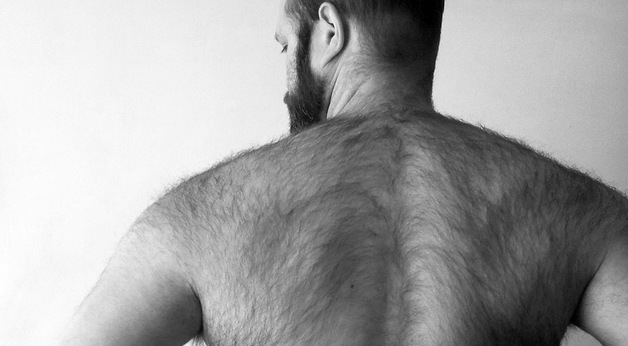|
We should exercise, not because we feel bad about ourselves and our bodies, but instead simply because it’s good for us. Surely that’s reasonable? How did it all get this bad?
What I value the most is this: exercise teaches you about your body and mind. It brings relief from pain and makes moving easier. It encourages self-knowledge and reflection. It can grow your critical mind and give you perspective without feeding your judgmental impulses. It creates peace, when it’s done well, it improves confidence and subtle awareness. It is challenging to describe.
64 Comments
We tend to think about movement and exercise in very much a sports-centric way. But we don’t have to. We talk about healthy competition, and ignore what seems to me to be the much more prevalent issue of unhealthy competition, we talk about athletic progression and developing the human body or machine even. But movement doesn’t have to exist only in this context. We can think of movement in terms of artistic expression.
I had a chat with a dude in the gym the other day and he expressed that the beauty standard is harder for men than it is for women now, because you have to be big and muscular, but also ripped, and how that's tough because building mass while shredding are like, contradictory goals. So he basically just outlined why the whole "strong is the new skinny" thing is so hard, without touching on the real reasons that it's such bullshit. Hate the system? Don't ask more people to buy in, tear it the fuck down.
It doesn't matter if you're on your phone. Even if you train with 100% focus and clarity of intent, it doesn't matter if you're texting during your rest periods. They're rest periods. When you're on your phone you don't need to be thinking about weightlifting and when you're lifting, you don't need to be thinking about your phone.
I saw a headline the other day: If I want to lose weight, does it mean I have internalized weight stigma? What they mean I imagine, is: I want to be thin, am I broken in some way? Is this yet another fucking thing I need to worry about?
What belongs to you, and what belongs to culture? We live in a weird, obsessive, toxic yet health-conscious culture. We’re constantly told we need to be thinner and there’s nothing in particular that’s wrong with believing what you’re told all the time. It can be somewhat overwhelming. It’s just that it’s pretty one-dimensional. A couple of trainers were talking about physiques they find inspiring. It got me thinking – of course, nobody can out Jackie Chan Jackie Chan. Nobody can be more Christine Girard than Christine Girard. There’s nobody more Kardashian than Kardashian. We all know this, even if we do use other people’s physiques as some sort of inspiration.
And of course, nobody will be more Chris than Chris, but it’s far less glamourous to simply be yourself. Where’s the fun in that?! It’s just reality! Maybe it’s because it’s no work, and we like the idea of working at something, modelling ourselves after something, having someone else lead the way. Choosing to walk your own path is a bit lonely. You are automatically endorsed and comforted when you walk behind or with someone else. Whether you’re religiously pious or a bit of a fitness nut, we have a long history – us humans – of believing there’s moral superiority in the rejection of pleasure. I used to buy into this myself to a point, but I’m less prone to moralizing in general than I used to be. Or perhaps to rephrase: morals where morals belong, but what about where they don’t quite seem to fit?
If I’m to think about the logical biology of pleasure and disgust, they serve it seems, to ensure survival of the species. I’m not a biologist. My mum is, so I hope she’ll correct me if I’m off-base, but what seems logical to me is this: things that bring us pleasure: eating, sex, sleeping, exercise, relaxation, social interaction – these things can all be linked with the survival of our species, in rather direct ways. Also, these things that disgust us: mold, rot, certain foods, smells, pain – the mechanism of disgust also clearly serves to keep us alive. Why is it that in gyms, the yoga and stretching classes are always grouped under the banner of “mind and body”, while high intensity cardio, circuit or weightlifting classes are not? Weightlifting is all about the mind, strength is about the mind. I guess it’s because “regular exercise” is something we’re used to doing mindlessly. This is a shame. There is no way you can progress without mindfulness. It’s not religious, it doesn’t have to be serene or disciplined. Instead it’s quite simple. If you wish to progress your training in any way at all, you must think about it. You must reflect on what you’re doing, and bring your awareness and attentiveness to the task.
Re-posted with permission, written by the astute and articulate Shelly of Body Positive Health and Fitness:
-- "Can you help me lose weight and keep it off?" Real talk: (please read to the end) If you are going to pursue weight loss, find out what the statistics are for people to maintain that loss via your chosen method or by any method at all, not at the 8 week mark when they seem successful, but at the 3 year and 5 year mark (usually less than 5%, and that's being generous, if there are even studies that went on that long - rare). Find out how much weight loss they count as a success (usually 5kg or so). Find out how many people were even able to maintain the diet for the duration of the short study (dropout rates are usually high). If your doctor suggests weight loss, ask them for these figures as well. I always feel too big or too small. I know that neither is ultimately true, and I have a better handle on things than I used to. But it takes a degree of dedication and patience to shift my perspective, because what I actually do have is a life-long habit of feeling like my body is the wrong shape in some regard. After a while, and somewhat fortunately, I realised the problem was not with my body, but with my perception of my body. And to dig a little deeper, the issue is not how I perceive my body in a specific sense, but how I – and we – are taught to perceive bodies in our culture.
If you read my blog regularly, you’ll know that this is nothing new. And maybe now I’m not bringing anything new to the table, only a reminder that it takes a lot of work if you’ve decided you want to single-handedly combat all the body prejudices of our modern fat-hating society. So the answer is, I think – don’t do it single-handedly. |







